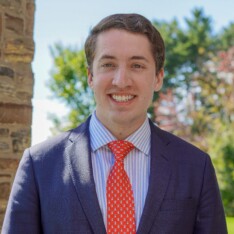

By David Waugh
Government bureaucrats and international agencies point to impending “doomsday” events, often due to climate change. Recent headlines demonstrate an alarming number of apocalyptic forecasts by intellectuals and government officials.
Two weeks ago, pundits seized on The Bulletin of the Atomic Scientists’ updating its “Doomsday Clock,” a metaphor for how long we have until armageddon. The group responsible for the clock includes public policy professors, United Nations employees, and a staff writer for the New Yorker. This year, these experts moved the clock to its closest-ever to doomsday, citing the increased risk from climate change and war.
Earlier this year, Stanford scientist Paul Ehrlich claimed, “humanity is very busily sitting on a limb that we’re sawing off,” in a highly publicized 60 Minutes interview.
Like Ehrlich, President Biden, using language from a UN report, deemed climate change risk a “code red for humanity” in a speech on proposed energy regulations.
Curiously, the coming doom in these narratives is usually humanity’s fault, and the preferred solution is always more government. Global leaders implore us to accept more regulations and reduce meat-eating, travel, and energy consumption. If not, the day’s crisis will worsen.


There is a reason such threats are hard to ignore. Our biological programming primes us to look for things that might harm us.
In the face of growing regulatory risks to our preferred ways of life, the least we can do is see the perpetual crisis narratives for what they are: a tool to legitimize dangerous increases in the size and scope of government.
By enabling politicians to expand the role of government recklessly, we risk working against what Americans want: a healthy economy. Recent polling data show Americans worry most about the rising prices of daily goods.
In last month’s Gallup poll titled “What do you think is the most important problem facing the country today?” 40 percent of Americans cited economic problems, while 15 percent pointed to “The government/Poor leadership.”
Where was climate change? Near the bottom. In contrast to mainstream media narratives, only 3 percent of Americans think climate change is our most important problem.
Still, governments worldwide use climate change to justify plans like the “Inflation Reduction Act” (IRA) and similar legislation containing billions in energy and climate subsidies. Researchers at the Heritage Foundation estimate the IRA will impose tax hikes of more than $2,400 on the average middle-income family.
The COVID-19 pandemic is another recent example of headline-grabbing catastrophic predictions serving as a pretext for governments to expand their power dramatically. The resulting lockdowns inflicted enormous social and economic costs worldwide.
Americans care about economic issues, not empty threats. Further, unlike what some politicians might claim, the path to prosperity is simple: get the government out of the way.
Data from the Fraser Institute confirm the relationship between economic freedom and increasing prosperity. Researchers find positive associations between economic freedom and income, economic growth, and entrepreneurial activity.
Almost 70 years ago, H.L. Mencken stated, “The urge to save humanity is almost always only a false-face for the urge to rule it. Power is what all messiahs really seek: not the chance to serve.”
Today, doomsday narratives enable government officials to “save” us from catastrophe by growing their ability to control our lives.
Whether a “Doomsday Clock” or another frightening metaphor, politicians and intellectuals claiming the end times are near often manifest as nothing more than cover for harmful government interventions into the economy.
The views and opinions expressed in this commentary are those of the author and do not reflect the official position of Citizens Journal
TELL YOUR FRIENDS ABOUT CITIZENS JOURNAL Help keep us publishing –PLEASE DONATE




